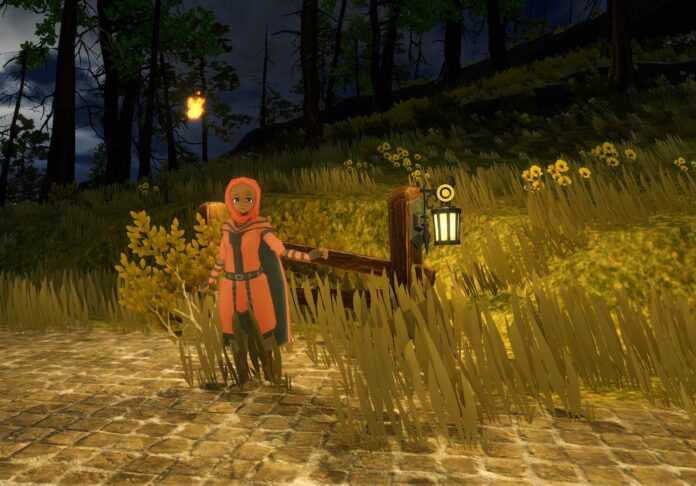Robert Kabwe is a solo developer for over 20 years. Working under the name Protopop Games he creates these stunning open world games filled with beautiful natural environments and stories that deal with important social themes like the environment, religion and exploitation. His games have been downloaded over a million times on various platforms.
His accomplishments are all the more impressive when you realize he’s doing game development in his spare time next to his day job as a designer. Kabwe is building his latest game Wilderless in stages. The world is now available as a walking simulator set in a massive world that is free to explore. Story, missions and more traditional gameplay will follow in the coming months.
Why did you become a solo developer?
“I started making games in 1999 when I created my first game Nimian Flyer on the new-then tech Flash. I don’t think there was a conscious decision to do it. Growing up playing RPGs like Dungeons and Dragons, the idea of creating worlds was something I’d already enjoyed in D&D. I think I just took the opportunity Flash presented to bring a game world to life in a different medium. I do remember specifically asking myself at some point “why am i making this game?” And the answer was simply that I enjoyed it. So my specific motivation, I suppose, is following a raw passion.”
“That was my first foray into a life as a solo game developer, although I wouldn’t have thought of myself as one back then. I still don’t particularly think of myself this way today because my game design is still part time. During the day I have my job doing design and I divide my time between that career and my work on games. I don’t think the life of a solo game dev -whatever that may entail – is specifically something that I felt I wanted to pursue. It’s more of a necessary side effect of wanting to create something and then doing what needs to be done to create it.”
What are the biggest advantages of working solo?
“The best part about working solo is having a unified vision. There are no communication issues between departments like you would find in larger studios, because as a solo dev you are responsible for everything. For me at least the motivation is having an idea and wanting to bring that to life, so you just have to be clear about what you are trying to achieve. If you follow that you will have a pretty concrete game design process laid out in front of you. And any questions or debates about what kind of game you are trying to make can be had on your own time anywhere -while biking, riding a bus, in the shower. The ideas come from within you and it’s easy to have discussions about your ideas when it’s only you thinking about them.”
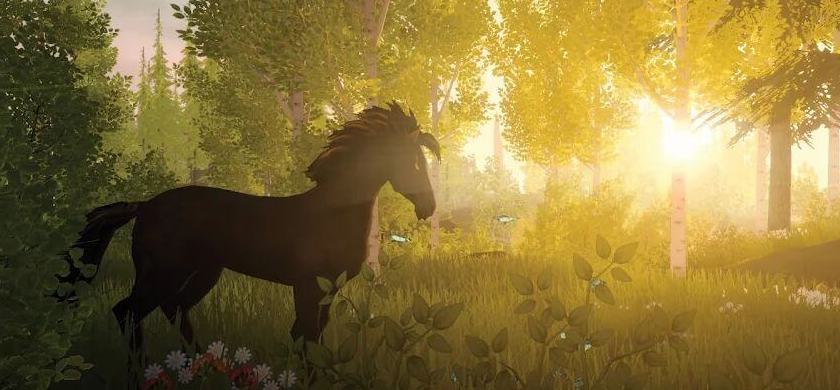
What are the biggest pitfalls?
“The most difficult part of being a solo game developer for me is the lack of resources and the quick changing technological requirements by app stores and game engines. Any budget has to come from my own pocket. And App stores are constantly changing the requirements to make submissions. You can have a fully prepared pipeline and then a new required upgrade will come along and potentially break that.”
“You are also at the mercy of app store decisions. For example, there was recently some debate about Apple removing functioning games from the app store, mine included, that had not been updated in 3 years. Basically the difficult parts appear where your individually natured solo dev efforts meet the realities of large corporations with their own motivations and needs. It’s a challenge to navigate this.”
How does your creative process work?
“Most of my ideas come to me during the day. I write most of them down and I have collected a large document full of ideas. When the time comes to work on a particular thing, I go through my document and organize it into a list I can actualize. Then it’s a case of just creating things one step at a time. The list of what’s required for creating games can be huge, so it’s important to try and see the light at the end of the tunnel. And know that hundreds of steps eventually lead to a finished product.”
Passion for what I’m doing is one of the best motivators.
“In the grander scheme of things, I have large scale ideas about what I want to achieve. For example BrightRidge dealt with the environment, Vandgels was a story about religion. And my next game, Nimian Legends, deals with class conflict and exploitation. These are all themes and concepts that are important to me. So in addition to the micro specific ideas, there’s also these overarching goals to achieve that aren’t written down, but that exist broadly in my mind. How best to achieve the goals is where the smaller steps come into play.”
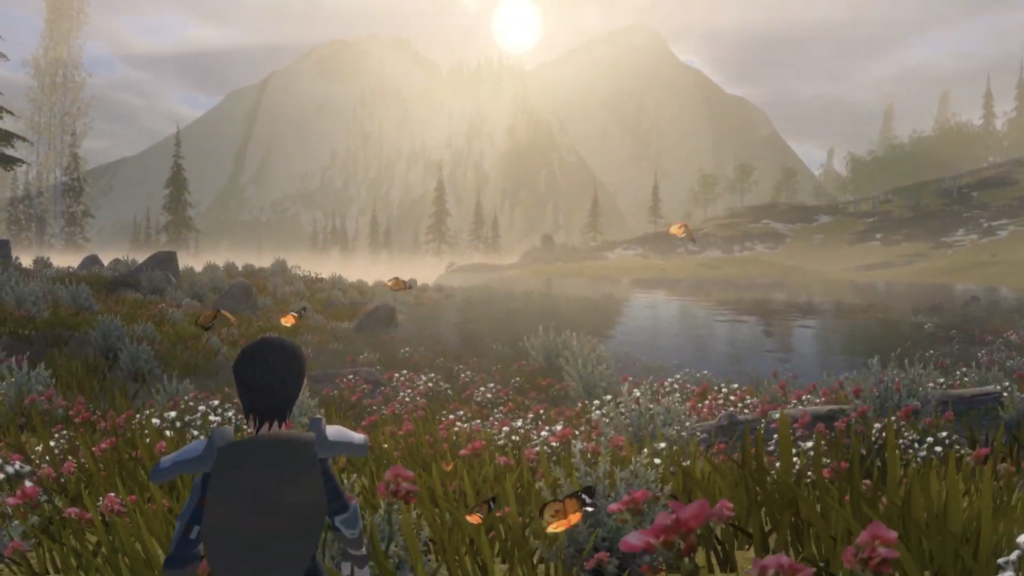
How do you stay motivated through (years of) development?
“Passion for what I’m doing is one of the best motivators. When you cannot see a light at the end of the tunnel, it’s the fact that there is little else you would rather be doing that can keep you going. The other motivator is the players. I’ve met so many wonderful people who have played my games and given me support. It is heartwarming to create something and connect with people who see it for what it is – whatever that may be – and enjoy it.”
You have to be a good boss to yourself
“There is a sense of community that arises from that and it feels positive. Basically a love for people and for creating is something that will always help keep you motivated. And this is important, because there are many challenges to working for yourself. The common one you’ll see is that solo workers need to do everything – from taxes to coding to art direction. If you don’t do anything, no one else is there to pick up the slack and do it for you. iI just won’t get done, and that can be a big pressure.”
Will you ever work in a team or is it only solo for you?
I would work with a team if a positive opportunity presented itself. I worked with teams early on in my career in marketing. And I currently work with teams with my design clients. I enjoy it, but I will say that I prefer working with smaller to medium sized teams. There is a fresh energy at those sizes and it is easier to communicate among the people you work with. I also prefer to work with groups who are open minded and demonstrate kindness. Although I don’t think empathy is by any means the sole purview of queer POC developers like me, I do think living that experience has taught me the importance of being kind hearted and open minded, and trying to put myself in other peoples shoes.”
“For me being a solo developer is just a situation that emerged from wanting to make games. I have an idea in my head and I want to actualize it. So I do what I need to do to get there. Since I’m able to do this using available 3d engines, there hasn’t been a need yet to work with a larger group to achieve that dream. With the tools available today like Unity and Unreal Engine, it’s easy to get your feet wet in game design. And if you have a passion for creating things, I think that is something that will help sustain you through the challenges.”
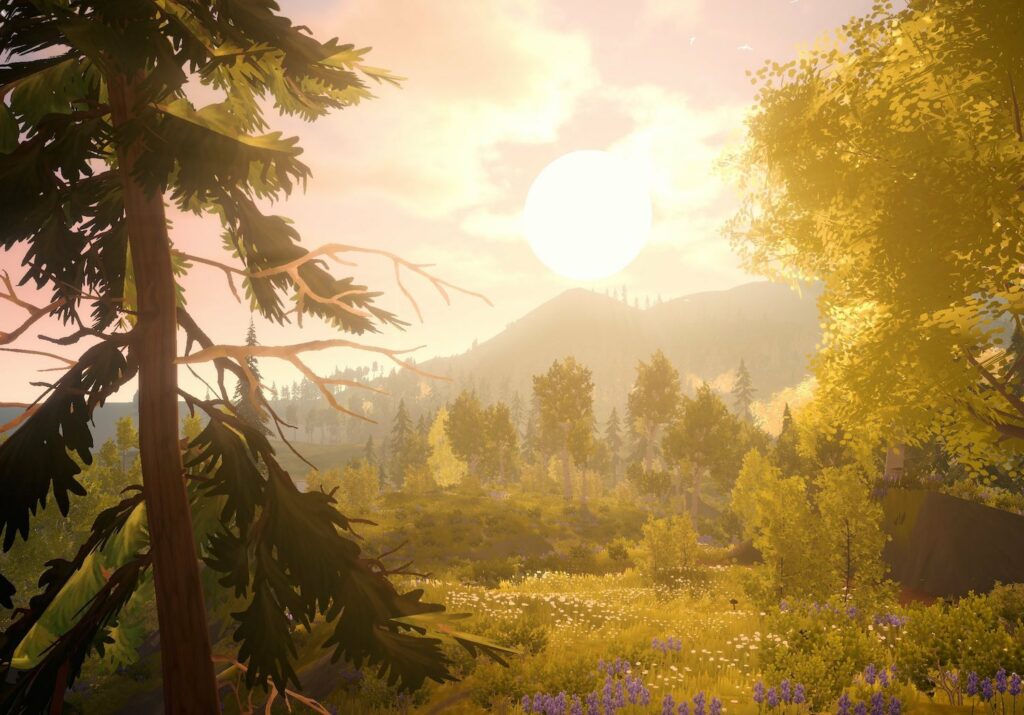
Your game Wilderless has no quests and no enemies, just endless landscapes to explore. Why have you decided on this unusual (but very enjoyable and relaxing) type of game?
“Wilderless is actually an early access game without being billed as such. It took me roughly five years to create my first open world game, Nimian Legends BrightRidge. And about three years to create my second, Nimian Legends Vandgels. I decided that I couldn’t afford to work another 3 years developing a game without a budget, so I’ve been building Wilderless bit by bit, and I started selling it as soon as it was viable as a ‘walking simulator’. There was a precedent here too. The first iteration of Nimian Legends BrightRidge was an open world walking simulator with no traditional game play. It was a few years later that I took the world I’d developed and added stories and more traditional gameplay to it.”
“The same process is at work with Wilderless. I’ve been adding to it the last couple of years – character customization, shape changing into animals, dungeons and ruins. Currently I’m working on adding country roads and inns. By offering it for sale and billing it as whatever it is at the moment – currently no quests or enemies exploration – I’m able to generate some income to help fund further development of the game. And I also love games where you just walk around and explore. I think it’s relaxing and positive, so if Wilderless stopped development right now, I think I, and many of my players, would be happy with what’s already there – a massive natural wilderness to explore and enjoy.”
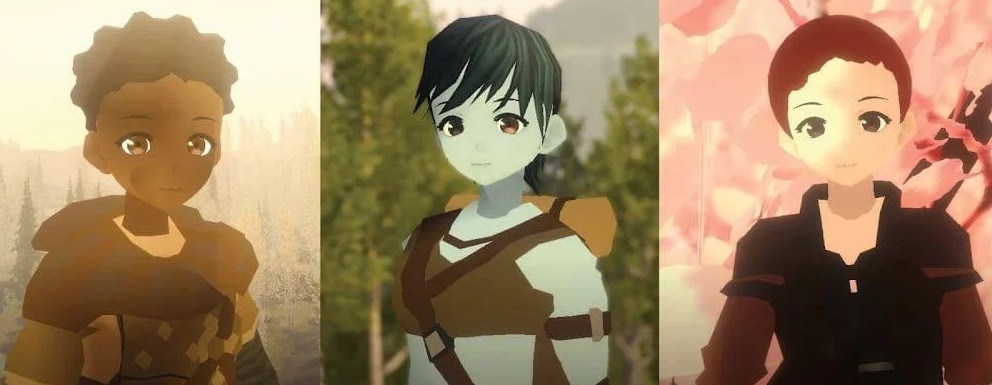
How do you deal with the toll that game development can have on your health?
“I’m 50 years old so I have had experience with burnout before. What it taught me was that you HAVE to take time for your own health and to rest. I still work massive hours and sometimes I consciously over work myself. But I balance that out with healthy eating and exercise, and I am sure to take rest and relax regularly. If you don’t do it manually then your body will do it for you.”
“I also try to understand that I am doing the best that I can. And because I am so passionate about creating these worlds, because I really want to do this, that is something that can help push you through the more difficult times. I think in order to make games – any art really – passion is something that is essential to keeping you motivated. The dark side of that is sometimes people can take advantage of your passion to work you harder than is healthy. In the case of working for yourself as a solo developer, that person is you. So you have to be a good boss to yourself – be encouraging , be understanding, push when needed but not overly so.”

